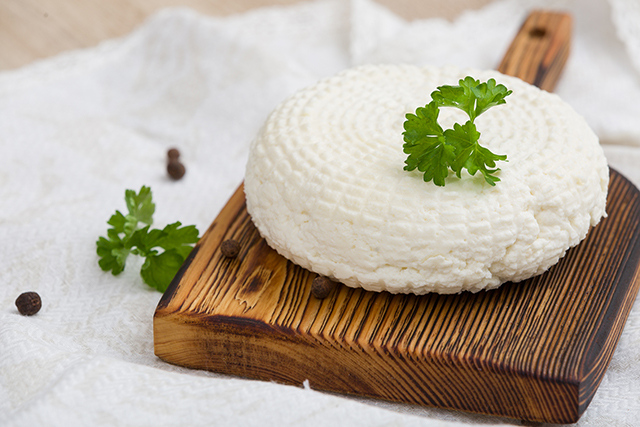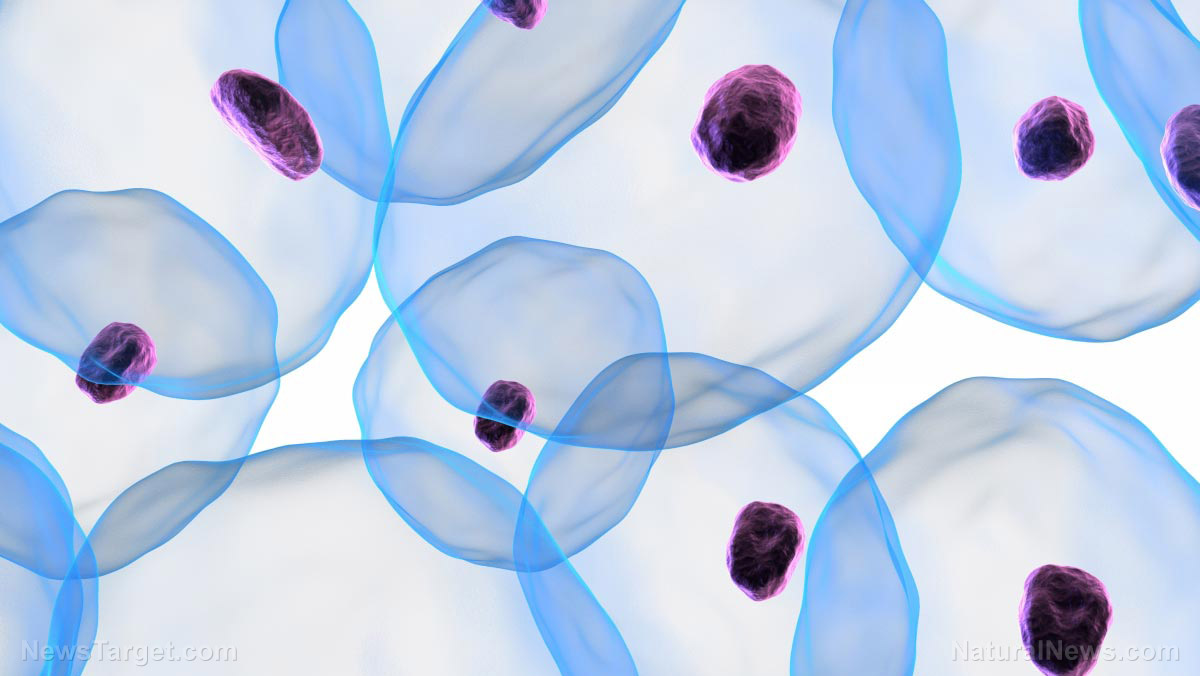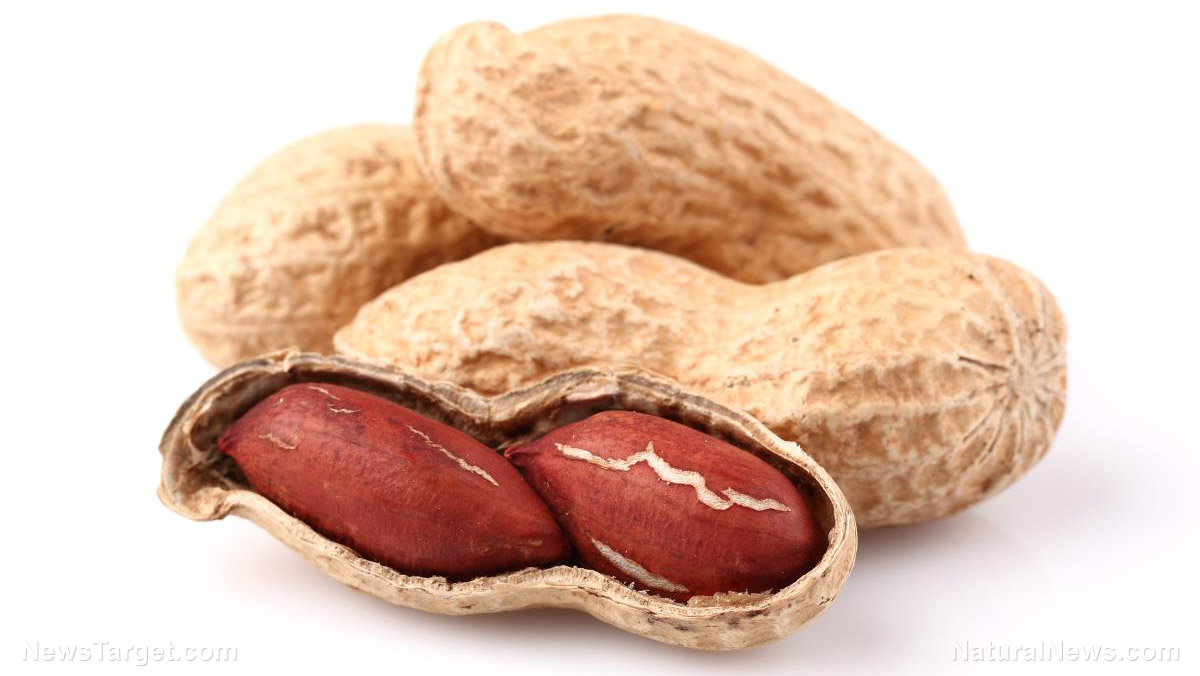Reishi: The “Mushroom of Immortality” and its healing legacy
08/14/2025 / By Ava Grace

- Reishi mushroom, known as lingzhi in Chinese, has been used for over 2,000 years in East Asia, revered as a “superior herb” in Traditional Chinese Medicine for promoting longevity, spiritual growth and vitality. It was historically reserved for nobility due to its rarity and potent health benefits.
- Reishi contains phytonutrients like beta-glucans, ganoderic acids, ergosterol and polyphenols, which support immune function, reduce inflammation, combat oxidative stress and offer benefits such as cancer prevention, cardiovascular support, stress relief, liver protection and anti-aging effects.
- Once rare in the wild, reishi is now commercially cultivated to meet global demand. It is typically consumed in powder, capsule or extract form due to its bitter taste and woody texture. Reishi is incorporated into teas, tinctures, soups and modern recipes like lattes and smoothies.
- Reishi’s distinctive reddish-brown, glossy cap and fan-like appearance have made it a symbol of immortality and spiritual enlightenment in East Asian folklore. Its bitter, earthy flavor is a hallmark of its medicinal potency.
- Reishi is celebrated as a superfood and adaptogen, offering holistic health benefits for the body, mind and spirit. Ongoing research continues to explore its full therapeutic potential, solidifying its status as a timeless medicinal marvel.
For centuries, the reishi mushroom (Ganoderma lucidum), also known as lingzhi in Chinese, has been revered as a symbol of longevity, vitality and spiritual potency. This polypore fungus, native to East Asia, has earned its place as one of the most celebrated medicinal mushrooms in Traditional Chinese Medicine (TCM) and beyond.
With its striking reddish-brown, varnished cap and fan-like appearance, reishi is not only a visual marvel but also a powerhouse of phytonutrients and therapeutic compounds.
Brief history of reishi
Reishi’s history is as rich as its medicinal properties. The mushroom has been used in East Asia for over 2,000 years, with its earliest recorded use dating back to the Han Dynasty (206 BCE–220 CE). Ancient texts, such as the Shen Nong Ben Cao Jing (The Divine Farmer’s Materia Medica), classify reishi as a “superior herb,” reserved for emperors and nobility due to its rarity and potent health benefits.
In traditional Chinese culture, reishi was believed to promote spiritual growth, enhance wisdom and grant immortality, earning it the nickname “the herb of the gods.” (Related: Reishi mushrooms can reduce cholesterol, prevent cellular damage.)
Reishi grows naturally on decaying hardwood trees, particularly in the humid, mountainous regions of China, Japan and Korea. However, due to its scarcity in the wild, modern cultivation techniques have been developed to meet global demand. Today, reishi is grown commercially in controlled environments, ensuring its availability for both medicinal and culinary purposes.
In Japanese folklore, reishi is often associated with the mythical Mount Penglai, a paradise where immortals reside. It is said that consuming reishi grants access to this divine realm, symbolizing eternal life and spiritual enlightenment. In modern times, reishi has gained global recognition, with wellness enthusiasts and researchers alike praising its ability to promote holistic health.
Phytonutrients and health benefits
Reishi’s therapeutic potential is thanks to its rich composition of bioactive compounds, which include polysaccharides, triterpenes, peptidoglycans and antioxidants. These compounds work synergistically to support the immune system, reduce inflammation and combat oxidative stress.
Among the most notable phytonutrients in reishi are:
- Beta-glucans: Known for their immune-modulating properties, these polysaccharides enhance the body’s ability to fight infections and diseases.
- Ganoderic acids: A type of triterpene that exhibits anti-inflammatory, anti-allergic, and liver-protective effects.
- Ergosterol: A precursor to vitamin D2, which supports bone health and immune function.
- Polyphenols: Potent antioxidants that neutralize free radicals and protect cells from damage.
Reishi’s adaptogenic properties make it a versatile remedy for a wide range of conditions. According to research, reishi offers the following benefits:
- Immune system support: Reishi enhances the activity of natural killer (NK) cells, macrophages, and other immune cells, making it a valuable ally in fighting infections and autoimmune disorders.
- Cancer prevention: Studies have shown that reishi’s polysaccharides and triterpenes may inhibit tumor growth and enhance the efficacy of chemotherapy.
- Cardiovascular health: Reishi helps lower blood pressure, reduce cholesterol levels, and improve circulation, reducing the risk of heart disease.
- Stress and anxiety relief: As an adaptogen, reishi helps the body adapt to stress and promotes relaxation by modulating cortisol levels.
- Liver Protection: Reishi supports liver detoxification and regeneration, making it beneficial for individuals with liver conditions such as hepatitis or fatty liver disease.
- Anti-aging effects: Its antioxidant properties combat oxidative stress, a key contributor to aging and chronic diseases.
Reishi is typically consumed in powder, capsule or extract form, as its woody texture and bitter taste make it less palatable in its raw state. Traditional preparations include reishi tea, tinctures and soups, while modern applications have expanded to include smoothies, coffee blends and even chocolates. For people seeking a daily dose of reishi, incorporating it into beverages or recipes is a convenient and effective option.
Culinary uses of reishi
Reishi’s appearance is as distinctive as its benefits. Its kidney-shaped cap, which can range from 2 to 12 inches in diameter, is characterized by a glossy, reddish-brown surface with concentric growth rings. The stem is often off-center, giving the mushroom a unique, fan-like silhouette.
Reishi is notably bitter, with an earthy, woody flavor that can be an acquired taste for some. This bitterness is a hallmark of its potent medicinal compounds, particularly the triterpenes.
For people eager to incorporate reishi into their diet, here are a few recipe ideas:
- Reishi mushroom latte – A soothing blend of reishi powder, almond milk, cinnamon and a touch of honey.
- Reishi-infused broth – A nourishing base for soups and stews, made by simmering reishi slices with vegetables and herbs.
- Reishi energy bites – Combine reishi powder with dates, nuts, and cocoa for a healthy, on-the-go snack.
- Reishi hot chocolate – A decadent yet healthful treat, blending reishi extract with dark chocolate and coconut milk.
- Reishi smoothie bowl – Top a reishi-infused smoothie with fresh fruit, granola, and chia seeds for a nutrient-packed breakfast.
Reishi, the “mushroom of immortality,” is a testament to the enduring wisdom of traditional medicine and the power of nature to heal. Its rich history, coupled with modern scientific validation, underscores its status as a superfood and medicinal marvel. Whether consumed as a tea, extract or culinary ingredient, reishi offers a holistic approach to wellness, supporting the body, mind and spirit.
This story is not medical advice and is not intended to treat or cure any disease. Always consult with a qualified naturopathic physician for personalized advice about your specific health situation or concern.
For more fascinating insights into superfoods and their natural wonders, visit NaturalNews.com. It’s a treasure trove of articles that will deepen your understanding of the healing power of food.
If you’re into cutting-edge technology with a health twist, try Brighteon.ai. Created by Mike Adams, the Health Ranger, this AI model is a free download that you can run on your own device. It’s all about sharing knowledge freely and bypassing the filters of censorship.
And if you’re looking for a place to openly discuss everything from nutrition to natural remedies without any holds barred, Brighteon.com is your go-to spot. Don’t forget to check out their free speech social media platforms, Brighteon.IO and Brighteon.social, where the conversation is always lively and uncensored.
Watch this video to learn how Reishi Mushroom is used in TCM.
This video is from the All About Herbs channel on Brighteon.com.
More related stories:
Reishi mushroom powder is an effective treatment for mouth ulcers.
Reishi mushroom and certain microalgae are great ways to enhance your immune system.
Reishi mushroom show tremendous promise in strengthening the immune system.
Sources include:
Submit a correction >>
Tagged Under:
adaptogenic properties, alternative medicine, Chinese medicine, herbal medicine, Herbs, natural cures, natural medicine, Naturopathy, phytonutrients, plant medicine, remedies
This article may contain statements that reflect the opinion of the author





















